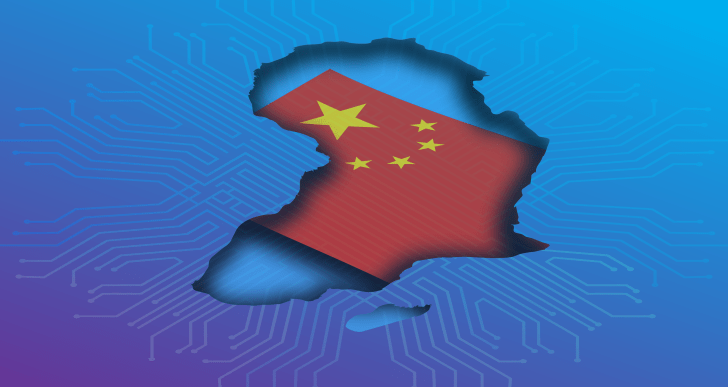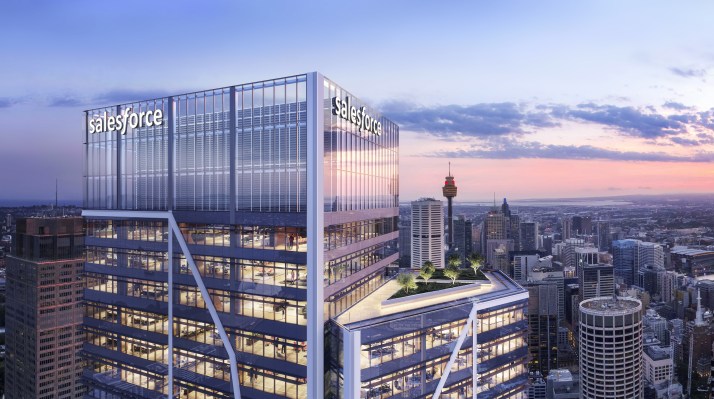Music
Trailers
DailyVideos
India
Pakistan
Afghanistan
Bangladesh
Srilanka
Nepal
Thailand
StockMarket
Business
Technology
Startup
Trending Videos
Coupons
Football
Search
Download App in Playstore
Download App
Best Collections
Technology

Ithardware season, and now itMicrosoftturn to deliver the goods. The company will be holding its big Surface event bright and early tomorrow morning in New York. If past years& events are any precedent (and they generally are), theregoing to be a lot of stuff shown off in the Big Apple this week.
This time last year, Microsoft introduced a new version of the Surface Pro, Laptop and Studio and added over-ear headphones to the lineup. This time out, we&ve already seen a number of leaks that point to additional refreshes and a couple of big &surprises& (in as much as rumored products can truly be a surprise).
The Surface Pro and Laptop are both said to be getting refreshes this year. The Surface Pro 7 is getting a smattering of upgrades — likely the most underwhelming of the event, including a new Intel processor and a USB-C port, dragging it kicking and screaming into 2019. The Surface Laptop 3, meanwhile, gets two size options: a 13-inch and 15-inch inch model, along with, potentially, a new AMD processor.
As for fully new stuff, Microsoft is believed to finally be embracing the ARM for Windows 10 platform with its Surface line. Rumors have it launching an ARM-powered two-in-one at the event. Among the benefits are a smaller footprint and far improved battery life — both marked benefits for any portable.
The biggest reveal of the show, however, is expected to be the long-awaited addition of a dual-screen Surface. A decade after abandoning Courier, Microsoft is expected to announced a new form factor for the line. The rumor, which includes a bespoke version of Windows 10 (the somewhat confusingly named Windows 10 X), also points to a potential launch for the device some time later this year.
- Details
- Category: Technology
Read more: Here’s what Microsoft will probably announce at tomorrow’s Surface event
Write comment (98 Comments)Presidential candidate Senator Elizabeth Warren has responded publicly to a leaked attack on her by Facebook CEO Mark Zuckerberg, saying she won&t be bullied out of taking big tech to task for anticompetitive practices.
Warrensubtweeting of the Facebook founder follows a leak in which the Verge obtained two hours of audio from an internal Q-A session with Zuckerberg — publishing a series of snippets today.
In one snippet the Facebook leader can be heard opining on how Warrenplan to break up big tech would &suck&.
&You have someone like Elizabeth Warren who thinks that the right answer is to break up the companies … if she gets elected president, then I would bet that we will have a legal challenge, and I would bet that we will win the legal challenge,& he can be heard saying. &Does that still suck for us? Yeah. I mean, I don&t want to have a major lawsuit against our own government. … But look, at the end of the day, if someonegoing to try to threaten something that existential, you go to the mat and you fight.&
Warren responded soon after publication with a pithy zinger, writing on Twitter: &What would really ‘suck& is if we don&t fix a corrupt system that lets giant companies like Facebook engage in illegal anticompetitive practices, stomp on consumer privacy rights, and repeatedly fumble their responsibility to protect our democracy.&
In a follow up tweet she added that she would not be afraid to &hold Big Tech companies like Facebook, Google and Amazon accountable&.
The Verge claims it did not obtain the leaked audio from FacebookPR machine. But in a public Facebook post following its publication of the audio snippets Zuckerberg links to their article — and doesn&t exactly sound mad to have what he calls his &unfiltered& views put right out there…
Whether the audio was leaked intentionally or not, as many commentators have been quick to point out — Warren principal among them — the fact that a company has gotten so vastly powerful it feels able to threaten to fight and defeat its own government should give pause for civilized thought.
Someone high up in FacebookPR department might want to pull Zuckerberg aside and make a major wincing gesture right in his face.
In another of the audio snippets Zuckerberg extends the threat — arguing that breaking up tech giants would threaten the integrity of elections.
&Itjust that breaking up these companies, whether itFacebook or Google or Amazon, is not actually going to solve the issues,& he is heard saying. &And, you know, it doesn&t make election interference less likely. It makes it more likely because now the companies can&t coordinate and work together.&
Elections such as the one Warren hopes to be running in as a US presidential candidate… so er… again this argument is a very strange one to be making when the critics you&re railing against are calling you an overbearing, oversized democracy-denting beast.
Zuckerbergremarks also contain the implied threat that a failure to properly police elections, by Facebook, could result in someone like Warren not actually getting elected in the first place.
Given, y&know, the vast power Facebook wields with its content-shaping algorithms which amplify narratives and shape public opinion at cheap, factory farm scale.
Reading between the lines, then, presidential hopefuls should be really careful what they say about important technology companies — or, er, else!
How times change.
Just a few short years ago Zuckerberg was the guy telling everyone that election interference via algorithmically amplified social media fakes was &a pretty crazy idea&.
Now hesaying only tech behemoths like Facebook can save democracy from, uh, tech behemoths like Facebook…
For more on where Zuckerbergself-servingly circular logic leads, letrefer to another of his public talking points: That only Facebookcontinued use of powerful, privacy-hostile AI technologies such as facial recognition can save Western society from a Chinese-style state dystopia in which the presence of your face broadcasts a social credit score for others to determine what you get to access.
This equally uncompelling piece of ‘Zuckerlogic& sums to: ‘Don&t regulate our privacy hostile shit — or China will get to do worse shit before we can!&
So um… yeah but no.
- Details
- Category: Technology
Read more: Elizabeth Warren bites back at Zuckerberg’s leaked threat to K.O. the government
Write comment (91 Comments)
Therebeen a heap of China in Africa coverage over the last decade, but very little of it is focused on tech. In part, because the countryengagement with African startups is light compared to its deal-making on infrastructure and commodities. Now, that all looks to be shifting.
TechCrunch has tracked moves by a number of Chinese actors in Africatech sector over the past year. This could signal the next chapter in Chinainfluence in Africa — one more digital than bricks and mortar.
Primer on China in Africa
To the former, the government of China has designated Africa a strategic priority in its foreign relations and has pursued policies and programs accordingly.
- Details
- Category: Technology
Read more: China’s growing digital influence in Africa
Write comment (96 Comments)
Salesforce announced this week that itbuilding another shiny tower. This one will be in Sydney with views of the harbor and the iconic Sydney Opera House. The company has also committed to adding 1,000 new jobs in the next five years and to building the tower in a sustainable fashion.
In fact, Salesforce is pledging the new tower will be one of the greenest buildings in the country when they are finished. &The building has achieved Sydneyfirst-ever WELL core and shell Platinum pre-certification, the highest obtainable pre-certification, and will achieve a 6 Star Green Star Design and As-Built rating, representing world excellence in sustainable design,& SalesforceElizabeth Pinkham wrote in a blog post announcing the project.
As is Salesforceway, itgoing to be the tallest building in the city when itdone, and will sit in the Circular Quay, part of the central business district in the city, and will house shops and restaurants on the main floor. As with all of its modern towers, itgoing to dedicate the top floor to allow for flexible use for employees, customers and partners. The building will also boast a variety of spaces including a Salesforce Innovation Center for customers along with social lounges, mindfulness areas and a variety of spaces for employees to collaborate.
Salesforce has had a presence in Sydney for more than 15 years, according to the company, and this tower is an attempt to consolidate that presence into a single, modern space with room to expand over the next five years and add hundreds of new employees.
The announcement comes on the heels of the one earlier this year that the company was building a similarly grand project in Dublin to centralize operations in that city where it has had a presence since 2001.
- Details
- Category: Technology
Catalyte, the Baltimore-based coding training and placement service, has launched a new software service designed to take its machine learning-based skills-assessment and training program to companies around the country.
With revenues already approaching nearly $100 million for its outsourced software development services, Catalyte is hoping to take the lessons and tools it has learned and developed over the course of its 18-year history as a staffing and training company for the tech industry and sell them to companies looking to retrain or provide additional skills development opportunities for their employees.
&Even if we were the largest employer in the world we still would not be able to move the needle on the labor economy,& says Catalytechief executive, Jacob Hsu.
He sees the companymission as providing a critical step for companies to identify the employees in their workforce with the skills to become coders and an opportunity for those employees to then receive the training they need to move into higher-paying roles as software eats into low-skilled, repetitive labor.
&We&re encouraging all of these employers to deploy these up-leveling skills,& Hsu says.
At Catalyte, the companysuccess has hinged on practicing what it preaches (and what itnow selling). Launched in 2000 as a staffing service in Baltimore called Catalyst Devworks by a former White House economist, Michael Rosenbaum, the company expanded to locations in Chicago and Portland and offers training and workforce development through contracted consulting projects with companies.

Photo courtesy of Getty Images
The companyrecruits come from anywhere and everywhere and hiring hinges on a skills test would-be employees have to perform that is monitored by software that tracks how test-takers respond to the companyquestions.
Once an applicant passes the test, they&re brought in for training and given a two-year contract during which time they&re put to work on development projects Catalyte has won from customers like Under Armor, Aetna, AT-T and Microsoft .
Catalytedevelopers are paid roughly $40,000 per year (less than half of what a developer typically makes) while they&re working under the two-year contract and are then allowed to seek employment outside of the company. Any employee that breaks the mandatory two-year contract is subject to a $25,000 penalty, according to a report in &Fast Company.& As they enter the third year, their contract with Catalyte gets renegotiated and employees who stay with the company can earn at least $75,000.
&We&re taking people from all walks of life,& says Hsu. &The average salary is $25,000 for people who have come in to the program… But within five years from working with the company, the average salary is $98,000.&
Itthis kind of narrative, and the companysolid revenue, that attracted investors like Steve Case, whobacking Catalyte through his $150 million Rise of the Rest Seed Fund.
In 2018, Catalyte raised roughly $27 million in a round of funding from Palm Drive Capital, Cross Culture Ventures, Expon Capital and the Rise of the Rest Seed Fund.
The relatively novel approach to training and hiring (with some of the companyrecruits even coming in through Craigslist ads that pitch getting paid for learning to code) has netted Catalyte some impressive statistics when it comes to the diversity of its workforce — another important criteria for CaseRise of the Rest fund.
&When you use this approach to hiring [in a city]… you end up with a workforce thatsimilar to the demographics of a city,& says Hsu.
In Baltimore, the companyworkforce is about 29% African American and 30% of the developers are women. The average age of a programmer in the companyworkforce is 33 years old and education levels range from about one quarter with only a college degree to college-educated candidates.
Catalytegrowth over the past three years has been nothing short of explosive. The company went from 50 employees in 2016 to around 800 people on staff now.
That staff is critical not just to the companycurrent business model, but also served as a training tool for the machine learning and assessment tools that Catalyte is now trying to sell. &We spent over a decade collecting outcome data from engineering projects,& says Hsu. And that data was what was used to create the companymetrics for whether or not a candidate for a programming job at the company would be successful.
The company intends to bring its assessment tool to market in the fourth quarter, but on the back of its recent fundraising, Catalyte has been ramping up its research and development activities. It wants to begin putting together a curriculum around cybersecurity and site reliability engineers. The software will cost roughly $1,000 per seat for every employee that receives its training regime.
&One of the fundamental ways our economy is going to both remain competitive on the international level and expand opportunities to more Americans is by changing the way we identify talent,& said Case in a statement discussing Catalytefinancing last year. &Catalyte proved to us that not only can it bring new and underrepresented groups into the fold, it can do so while helping its own clients grow.&
While the company is growing its product pipeline, it also intends to expand the number of development and training centers it operates. The plan, according to an interview Hsu gave to the local technology news site Technically Baltimore in February, is to have 20 development centers around the country by 2020.
- Details
- Category: Technology

Micromobility has taken off over the last couple of years. Between electric bike-share and scooter-share, these vehicles have made their way all over the world. Meanwhile, some of these companies, like Bird and Lime, have already hit unicorn status thanks to massive funding rounds.
Horace Dediu, the well-known industry analyst who coined the term micromobility as it relates to this emerging form of transportation, took some time to chat with TechCrunch ahead of Micromobility Europe, a one-day event focused on all-things micromobility.
We chatted about the origin of the word micromobility, where big tech companies like Apple, Google and Amazon fit into the space, opportunities for developers to build tools and services on top of these vehicles, the opportunity for franchising business models, the potential for micromobility to be bigger than autonomous, and much more.
Herea Q-A, which I lightly edited for length and clarity, I did with Dediu ahead of his micromobility conference.
Megan Rose Dickey: Hey, Horace. Thanks for taking the time to chat.
Horace Dediu: Hey, no problem. My pleasure.
Rose Dickey: I was hoping to chat with you a bit about micromobility because I know that you have the big conference coming up in Europe, so I figured this would be a good time to touch base with you. I know you&ve been credited with coining the term micromobility as it relates to likes of shared e-bikes and scooters.
So, to kick things off, can you define micromobility?
Dediu: Yes, sure. So, the idea came to me because I actually remembered microcomputing.
- Details
- Category: Technology
Page 751 of 5614

 17
17





